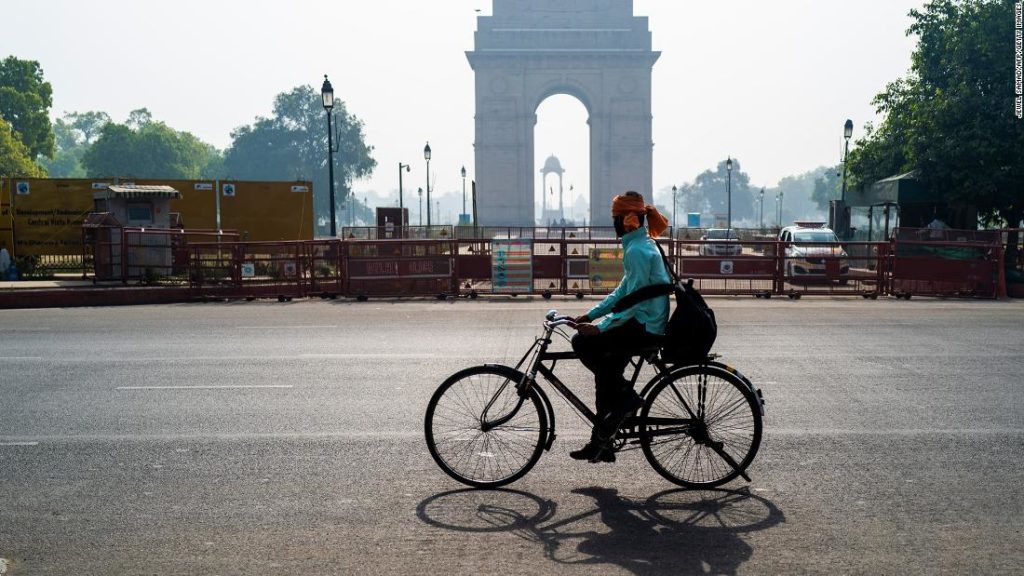Now India is facing its own devastating Covid-19 crisis, and Prime Minister Narendra Modi is reluctant to put his economy through another round of turmoil.
India’s economy may get crushed again regardless.
That’s beginning to play out in India’s leather industry.
India is a major global exporter of leather and leather goods. The country is the second-largest exporter of leather garments and fourth-largest exporter of leather goods in the world, according to the Indian Council for Leather Exports (a division of India’s Ministry of Commerce & Industry). It is also a major producer of footwear after China, producing nearly three billion pairs of shoes annually.
Last year, the pandemic dealt a serious blow to India’s leather industry. Leather exports slumped a steep 29.1% last year over the prior year, as the industry lost almost $1.4 billion in exports. That’s because shoppers in the United States, European Union and United Kingdom held off on purchases during their own lockdowns, according to Aqeel Panaruna, chairman of the Council for Leather Exports.
One industry expert, who didn’t want to be identified and is also currently infected with the coronavirus, said leather producers have suffered from a cumulative knock-on effect of a protracted shutdown last year. He’s worried that a worsening second wave could set the industry back once again.
Much of that worry is fueled by the dynamics of the industry’s workforce.
“The majority of the workforce is in the 18 to 45 years of age and have not been vaccinated as yet,” noted Sanjay Leekha, vice chairman of CLE.
“We’re relying on god now”
Shashi Kashyap is senior manager with Indian Leather manufacturer, a leather products manufacturer and exporter based in New Delhi. The 30-year-old family business operates three production facilities in the city, which is currently gripped by worsening health crisis.
Kashyup said he has Covid, his elderly father is also infected as are other members of his family.
“We are just relying on god right now to get us through this,” he said. “There’s nowhere to go to get tested, no room in hospitals to get admitted. People are dying on the streets.”
As he grapples with his personal reality, the company where he works is in dire straits, too.
Indian Leather Manufacturer employs more than 500 people and produces leather goods — jackets, bags, boots, belts, equestrian products — for customers in the United States, Europe and elsewhere.
“We get orders for 5,000 to 10,000 jackets just from one client,” said Kashyap. “We can’t name our overseas clients but they are in the luxury space,” he said.
2020 was a devastating year for the business. “All three of our facilities shut down for the first part of the year. Everything came to a stop,” he said. Then, as business started to pick back up in the fall, India started experiencing a deadlier second wave.
“We only operated for two months last year and now we’re shut down again,” said Kashyup.
Kashyup said it’s a situation that’s being played out across India’s key leather industry.
“I would say 50% of the factories in our industry were closed last year,” he said. Kashyup said his company is struggling to hold on to its skilled craftspeople.
“We have to find a way to pay them even in this shutdown because if we don’t, we know they just won’t be able to survive. If it’s not Covid, it will be because they have no money to live on.”
Raw material stockpiles are “becoming a concern”
Some of its owned and licensed brands include Levi’s, Calvin Klein, Cole Haan and Haggar Clothing Co.
“For accessories, most of our raw material for India production (leather) comes from the north and is suffering understandable and considerable delays,” said David J. Katz, EVP and chief marketing officer of Randa Apparel & Accessories.
“Our local raw material stockpiles are becoming a concern as demand for belts and wallets in the United States increases. However, our primary factories, suppliers, and new joint venture in India are in the Chennai region, which has been less affected by the pandemic spread. We’re hoping it stays that way. Production has been chiefly on schedule. Our deliveries from India have been somewhat delayed due to transportation and logistics backlogs.”
You may also like
-
Afghanistan: Civilian casualties hit record high amid US withdrawal, UN says
-
How Taiwan is trying to defend against a cyber ‘World War III’
-
Pandemic travel news this week: Quarantine escapes and airplane disguises
-
Why would anyone trust Brexit Britain again?
-
Black fungus: A second crisis is killing survivors of India’s worst Covid wave

